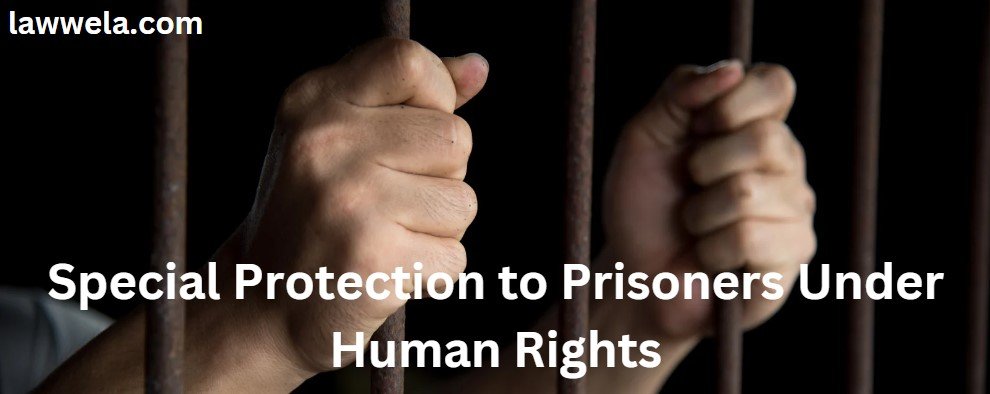The IPC provides for certain situations where conduct that would otherwise constitute an offence is not punishable. These are known as “general exceptions” and are outlined in sections 76 to 106. These exceptions are crucial as they recognize circumstances where an individual’s actions are justified or excused due to specific conditions.
The exceptions are:
Excusable acts
- Mistake of facts (76 and 79).
- Accident (section 80).
- Infancy 82 and 83.
- Insanity 84 section.
- Intoxication 85 and 86 section.
Reasonable acts
- Judicial Act sections 77 and 78.
- Absence of criminal intention section 81.
- Consent of every person 87 to 89 section and 90 and 92.
- Communication 93 section
- Under threat 94 section
- Trifling Act section (95).
- Private defence section (96, 97, 98, 99, 100 to 106).
Excusable acts
Mistake of facts
Section 76:
This section provides immunity from criminal liability to a person who commits an act under a mistaken belief that they are legally bound to do so.
For example: when a soldier is commanded by his officer to fire on a mob then he is not liable for any crime.
Section 79:
This section exempts a person from liability when an act is done in good faith and under a mistaken belief that they are justified by law to perform that act.
For example: Ram seized a person Sham because he thought that Sham was a murderer so in good faith Ram seized that person to bring him to the authority. So here is no offence committed.
Acts related to the accident
Section 80: States that nothing is an offence that is done by accident or misfortune and without any criminal intent in the doing of a lawful act in a lawful manner.
For example: A is trying to catch a chicken with a net but unfortunately, he causes harm to B. So here A is not liable for any offence.
Infancy
Section82:
under this section defines that nothing is an offence that is done by a child who is under the age of 7 years. The child has not attained the age of maturity of understanding things on his own.
For example: A is a child below the age of 7 years and he shoots a gun pointed at his father and it causes death. The child is not liable.
Section 83:
This section deals with the criminal liability of children above seven and under twelve years of age who have not attained sufficient maturity of understanding to judge the nature and consequences of their conduct.
For example: when a child is under the age of 12 and stole money he is not liable for any offence because he has not attained the age of maturity.
Insanity
Section 84:
An act done by a person who has an unsound mind
It states that nothing is an offence if the act is done by a person who, at the time of doing it, is because of unsoundness of mind incapable of knowing the effect of the act or that he is doing what is either wrong or opposing to law. Section 84 gives complete protection to a lunatic person.
For example: A has an unsound mind and he is playing with B by using a knife thinking that it will be fun but accidently he injured B. So A is not liable for any offence because he is incapable and unsound mind.
Section 85, 86 intoxicated person
An act is done by intoxication against his will. When a person is intoxicated without his knowledge and has done an act that is wrong and illegal, he is not liable for that.
For example: A is a friend of B and B gives an intoxicated drink to A without his knowledge and hits a person while driving a car back home. He is not liable for that because he did not know and without his will.
Reasonable Acts
Acts done by the judge
Section 77: when an act is done by a judge under the judicial proceedings with good intention is not an offence.
For example: when a judge gives capital punishment to a criminal by knowing all the facts under the court proceeding. The judge is not liable for any offence.
Section 78: when an act is done under the judgment of the court. The judge will decide based on the facts and with good intentions. Nothing is an offence.
For example: when a judge gives a punishment for lifetime imprisonment, will not be liable.
Absence of criminal intention section
Section 81:
This section provides immunity from liability when an act is likely to cause harm, but is done in good faith and without criminal intent, and it is done to prevent other harm.
For example, A is driving a bus with 60 passengers and the break fails so for the safety of the passengers the driver hits the bus as a result some people die, he is not liable for any offence because he has no intention or without negligence cause small harm to avoid large harm.
Sections 87 to 89 and 92 consent
Section 87:
This section deals with those games where consent is taken before playing such games or sports. It is not illegal to do anything that harms a person over the age of 18 who has given their express or implied consent to suffer the harm, even if the individual was not meant to die or suffer severe injury.
Section 88:
Under this section anything is performed with the consent of the victim and in good faith for the victim’s benefit is not illegal. It includes surgeons and surgical procedures as valid teaching practice.
Section 89:
Under this section anything is performed with the consent of the guardian and in good faith for the improvement of a child or insane person is not illegal.
Section 92:
This section provides exemption when an act is done for the safety of the person without consent, it is not illegal. Sometimes there are some circumstances where it is not possible to get the consent of the person or the person is not capable of giving the consent and their guardian is also not available to give the consent in that situation the act can be done.
Sections 93: communication
When communication is made in good faith and is intended to benefit the recipient, it cannot be considered unlawful if it causes that person any harm.
Section 94: When an act is done under any compulsion or threat
When a person is forced do to an act which is illegal under the threat of his life. Apart from capital punishment and murder, no action carried out by an individual forced to comply with threats creates a reasonable fear that the individual will face immediate death otherwise it is considered an offence. This is granted that the individual in dispute did not either voluntarily fear injury to themselves short of immediate death, or put themselves in a position where they were subjected to such force.
Section 95: Trifling acts
The trifling act means when a person harms somebody with intention or without and that harm is so minor that no reasonable person with common sense and composure would report it.
For example: when a person takes someone else a glass of water or lights his cigar from another person’s matchbox, etc.

Section 96 to 106: Private defence
Section 96:
This section essentially states that any act done in the exercise of the right of private defence is not considered a criminal offence under the IPC. It is a legal provision allowing individuals to protect themselves or their property from harm when there is an imminent threat.
However, it is important to note that this right is subject to certain conditions and limitations, such as the necessity of the action and the proportionality of the response to the threat faced.
Section 97:
Every person has a right to defend, subject to the limitations contained in Section 99
- Against any offence affecting the human body, both his own and everyone else’s body are protected.
- The property, whether movable or immovable, of himself or any other person, against any act of theft, robbery, mischief, or criminal trespass, or any attempt to commit such acts.”
Key Points:
- Right of Self-Defence: This section grants individuals the right to defend themselves or others from any crime that threatens personal safety.
- Defence of Property: It also covers the right to protect one’s property or the property of others from theft, robbery, mischief, or criminal trespass.
Restrictions:
- Section 99 IPC imposes limitations on this right, ensuring that the force used in self-defense must be reasonable and proportional to the threat faced.
This section provides the foundational basis for justifiable actions taken in self-defense or defence of property, establishing that such actions are not considered criminal offences under the IPC.
Defines Against Unsound Minds
Section 98:
This section clarifies that the right of private defence is applicable even if the person being defended against is of unsound mind. It means that the nature and extent of the right of private defence are not diminished just because the aggressor is mentally incapacitated.
- Nature of Defence: The same principles of private defence apply regardless of the mental state of the aggressor. However, the individual exercising this right must still act reasonably and proportionately according to the threat.
Example of Application:
If a person with a mental illness attacks someone, the person defending themselves or their property is still entitled to the same level of defence they would have if the attacker were mentally sound.
Section 99:
Section 99 of the Indian Penal Code (IPC) deals with the “General Exceptions to the Right of Private Defence” and outlines the limits and conditions under which the right of private defence can be exercised. The section states:
There is no right to private defence:
- Against an act which is not an offence: If the act being defended against is not a criminal act or does not pose a legal threat, the right of private defence cannot be invoked.
- To cause more harm than necessary: The force used in the exercise of the right of private defence must be proportional to the threat faced. Excessive force or harm beyond what is necessary for defence is not protected under the right of private defence.
- If there is time for seeking the protection of the law: If there is a reasonable opportunity to seek legal protection through law enforcement or other legal means, the right of private defence does not apply.
The right for private defence is not given:
- Against an act that is done by a public servant: When a public servant is acting in the discharge of their official duties, the right of private defence does not apply.
- Against the acts of another person that are not immediately threatening: The right of private defence can only be exercised against immediate threats and cannot be used to retaliate for past grievances or threats that are no longer present.
Section 100
If the following conditions are fulfilled. The right to private defence includes causing death or any other harm to the attacker.
- When there is a threat to one’s life or the lives of others: You can cause death or grievous harm if you are defending yourself or others from a threat that might cause death or serious injury.
- When there is a threat of grievous harm: when defending against an act that poses a threat of grievous harm to the body, one also has the right to kill or commit a crime that causes a threat of considerable harm to another person.
- When there is a threat of certain specific crimes: The right of private defence can be extended to causing death in the following situations:
- Kidnapping or Abduction: If there is a threat of serious harm in connection with kidnapping or abduction.
- Rape: If the threat involves sexual violence.
- Robbery: If there is a threat of grievous harm in the context of robbery.
- Criminal Trespass: When it is a situation where a threat of harm accompanies the criminal trespass.
Example of Application:
If a person is attacked with a weapon in a way that threatens their life, they have the right to use deadly force to defend themself, provided the force is proportional to the threat.
Section 101: When such right of private defence extends to causing harm:
If the act is done in the exercise of the right of private defence, the right extends to causing harm, including causing death, only when it is necessary and reasonable to do so to prevent the offence or threat faced.
Section 102:
(1) The right of private defence of the body or property shall not expand beyond the instant when the danger or attack ceases.
(2) If the attack or threat is imminent, the right of private defence can be exercised until the attack or threat is effectively repelled.
Section 106:
The right of the defender to run the risk of killing an innocent person will be upheld if, in the course of exercising private defence against an assault, the defender induces fear of death.

Landmark cases under the Indian Penal Code:
These sections cover situations where certain communications, such as statements made in good faith for the public good, reports of offences, and statements made in judicial proceedings, are protected from liability
State of Uttar Pradesh v. Ram Swarup
This case dealt with the right of private defence under Section 96-106 of the IPC. It established that the right of private defence is available against unlawful aggression and extends to the extent necessary to repel the attack.
Ratanlal v. State of Punjab
This case clarified the scope of the defence of insanity under Section 84 of the IPC. It held that for the defence to apply, the accused must be able to demonstrate that at the time of the offence, due to a mental disorder, they were unable to understand the temperament of the act or that it was wrong.
State of Maharashtra v. M. H. George
In this case, the Supreme Court of India discussed the general exceptions relating to acts done in good faith for the benefit of a person under Section 76 of the IPC. It emphasized that the act must be done with due care and attention to prevent harm to others.
Narotam Singh v. State of Punjab
This case is significant for understanding the exceptions under Section 77 of the IPC, which relates to acts done by a person justified by law, and how the burden of proof shifts from the prosecution to the accused when such exceptions are raised.
Jaswantrai Manilal Akhaney v. State of Bombay
This case dealt with the defense of necessity under Section 81 of the IPC, where it was held that the harm caused must be proportional to the harm avoided and that the act must be the only means of avoiding the harm.
These cases illustrate how the general exceptions under the IPC are interpreted and applied in Indian jurisprudence, guiding when certain acts may be justified or excused despite constituting an offence under the law.
Conclusion
The general exceptions under the IPC aim to balance the need for justice with considerations of individual circumstances and societal interests. They ensure that not every wrongful act is punished, taking into account factors like intention, mistake, age, mental condition, and societal benefit. Understanding these provisions is essential for interpreting and applying criminal law in India effectively.




Pingback: What is Abetment under IPC? -